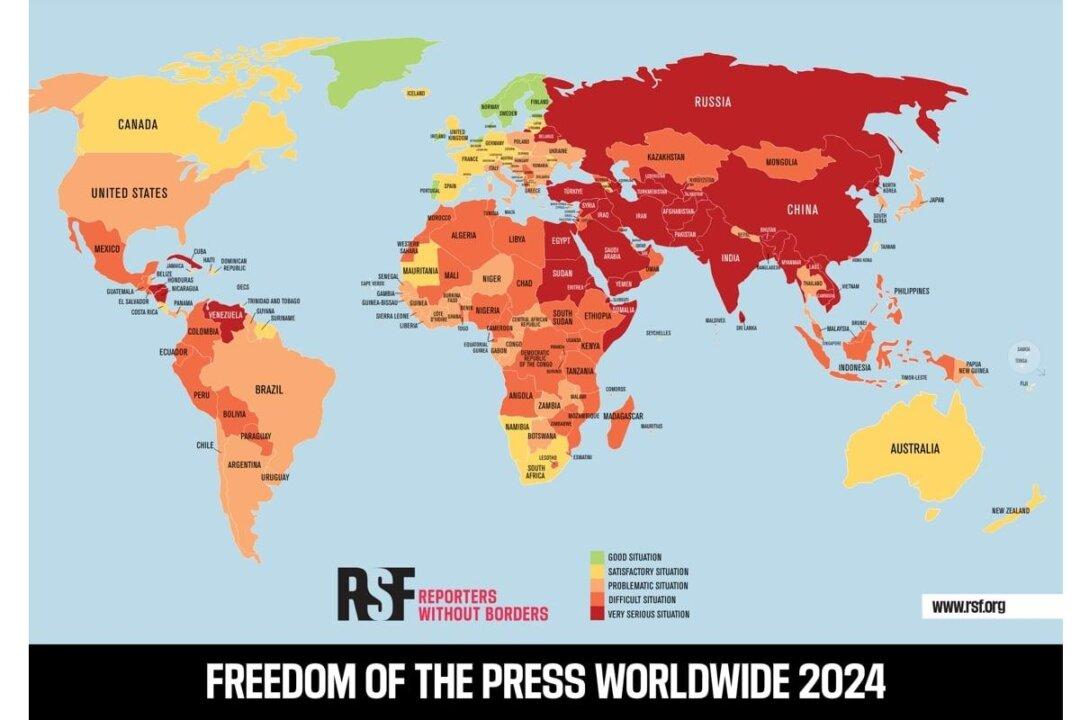May 3 is the annual World Press Freedom Day, and Reporters Without Borders (Reporters Sans Frontiers) takes the occasion to release its latest 2024 World Press Freedom Index. Hong Kong is ranked 135th from 180 countries and regions, bettering last year’s standing by five places, but its score suffered a drop to 43.06 from 44.86 last year.
In this report, RSF exclaimed that Hong Kong, once a bastion of press freedom, has suffered a series of unprecedented setbacks since Beijing passed the Hong Kong National Security Law (NSL) in 2020, which aimed at suppressing independent voices. Hong Kong’s latest ranking is worse than Zimbabwe (116th), Singapore (126th), Uganda (128th), and Cameroon (130th).




